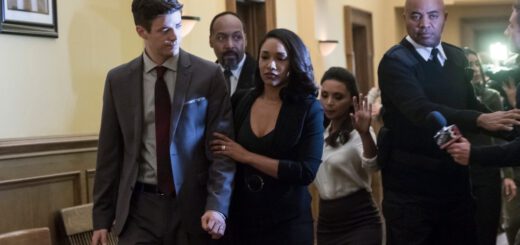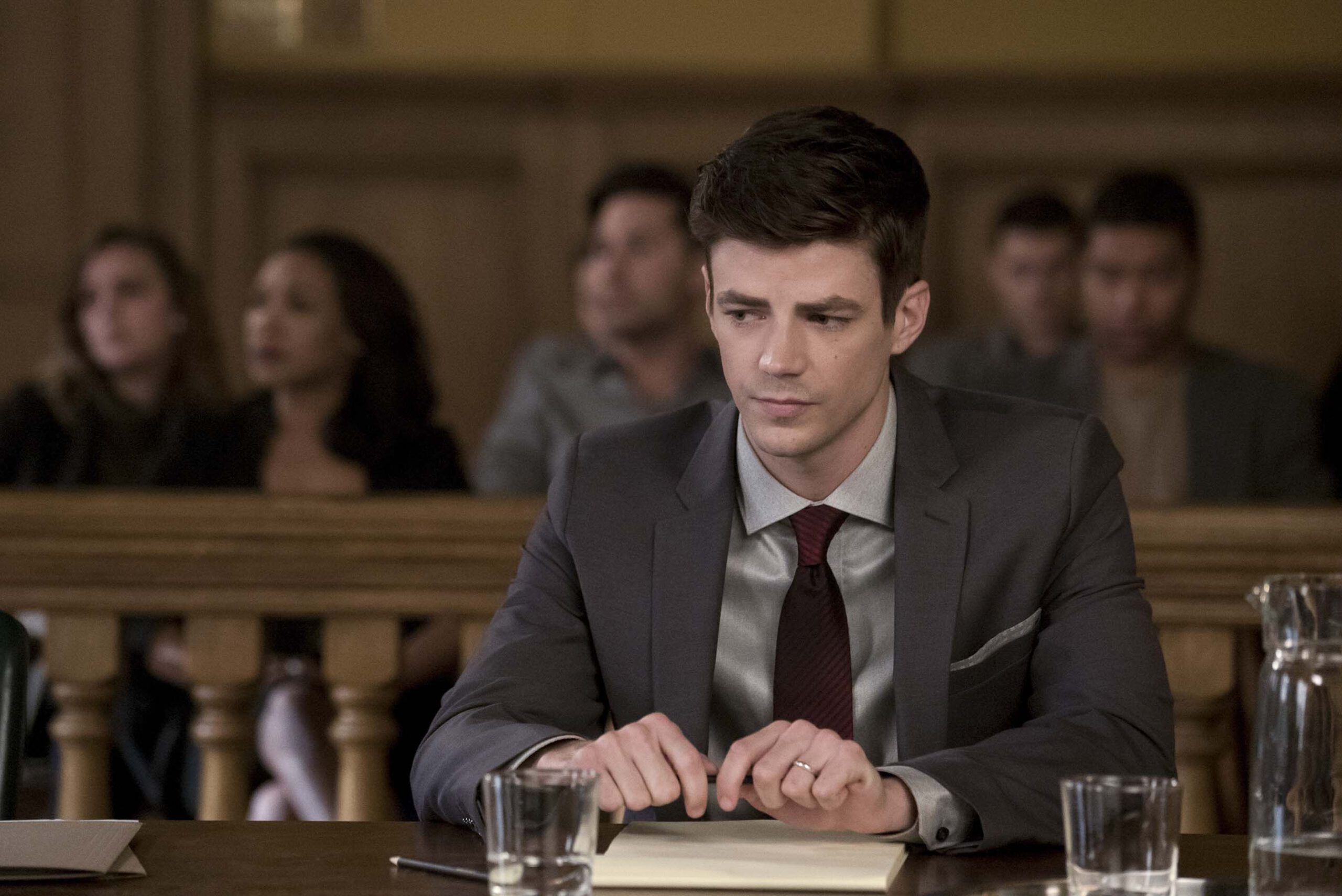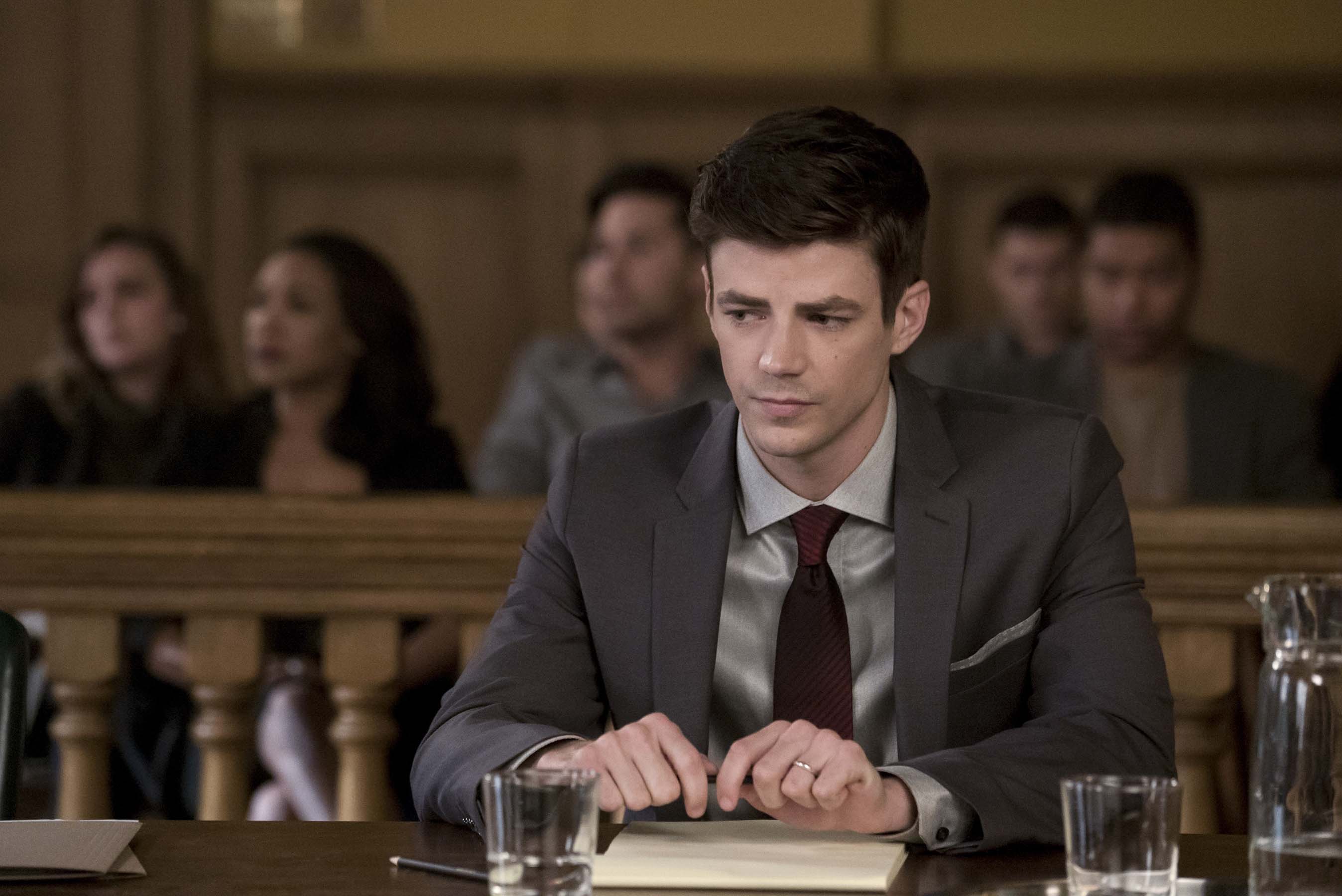The Law Is A Ass #429: If At Flash You Don’t Succeed, Try, Trial Again

Where do I begin? Oh, right, I began two columns ago, because this is column three in my series discussing the “The Trial of The Flash” episode from the The Flash TV show. (And there’s a sentence that’ll drive proofreaders crazy.)
Okay, I’ll actually begin with a SPOILER WARNING. If you’re not caught up on The Flash, I’m about to reveal a couple of episodes worth of endings. Now, with the warning out of the way, like a college professor dressing for his twenty-fifth graduation ceremony, I have to recap.
Barry (The Flash) Allen was on trial for murdering Clifford DeVoe. In reality, DeVoe, a super genius whose hyper brain was literally sapping the vitality from his own body, transferred his consciousness into the body of another man. Then he put his lifeless body in Barry Allen’s apartment and framed Barry Allen for murder.
The trial followed the Constitutional principle of a speedy trial, it barely took up half of the forty-two minutes a one-hour TV episode lasts when you use your DVR to skip the commercials. My writing about the trial has taken a bit longer. Okay, more like a terabit longer. But take heart, the trial’s reached the closing arguments and instructions to the jury stage.
Which I’m not going to write about.
Not because closing arguments and jury instructions are boring – although they are – but because the episode didn’t actually show either to us. About three sentences into defense counsel Cecille Horton‘s one-law-degree-short-of-being-ept closing argument, Barry received a Troubalert that the villain du semaine was wreaking havoc in Central City. Barry told the judge there was an emergency and he was needed. Cecille added that nothing required the defendant to be present during closing arguments and the judge let Barry leave the trial. You might wonder whether the defendant can actually leave a trial while it’s still going on. The answer is yes.
Defendants don’t normally leave their trials, because that tends to make juries think the defendants don’t care about the trial, so why should the juries care about the defendant? But they can leave while trials are going on. And case law says that if a defendant voluntarily absents him or herself from the trial, it can proceed without the defendant.
So Barry left the trial to help Team Flash. Not to mention helping us. As I said earlier, we didn’t have to watch the trial’s boring parts.
It took Flash less than one act to defeat the baddie. It took the same amount of time for the lawyers to finish closing arguments, the judge to deliver the jury instructions, and the jury to reach its verdict. Right before the act break, the jury found Barry guilty.
Some people have complained about the verdict coming in that fast. But it happens. It’s what we call in the legal game a flash verdict— no pun intended, that’s really what they’re called. When juries retire to the deliberating room usually the first thing they do is elect a foreperson. Then lots of juries will take a vote on the verdict just to see where they all stand. If that initial vote comes back with a unanimous guilty verdict, the jury deliberations could be over as quickly as the episode indicated. So I have no problem with how fast the verdict came in. I do have a problem with the jury instructions, however. Those things are never fast.
After the verdict, the prosecutor delivered a speech that he hoped Barry would receive a life sentence given the brutal nature of the crime. Which was grandstanding on his part. Barry had been convicted of murder in the first degree. In Missouri, the mandatory sentence for murder in the first degree is life without the possibility of parole.
Before the judge delivered Barry’s sentence, he delivered a speech about how in all his years on the bench he had never seen a defendant who was more unmoved or had such a lack of regard for human life. You know, the usual shtick.
Also grandstanding, but I can forgive the judge his grandstanding. Judges lay it on thick at sentencing, so they can show the voters they’re tough on crime. It tends to get them reelected. When prosecutors lay it on thick and show that they don’t even know what their state’s mandatory sentence laws are, they tend not to be reelected.
Which brings us to the end of “The Trial of The Flash,” but not our column. See while Barry was serving his sentence in Iron Heights Prison, Warden Wolfe discovered that Barry was The Flash. So three episodes later, in “True Colors,” Warden Wolfe made a deal to sell Barry and some of the other super villains in Iron Heights to Amunet Black, a super villain who trafficked in the super-powered people black market. When Barry and the other super villains learned about Wolfe’s plan, they attempted an escape during the course of which all the super villains and Warden Wolfe died. Team Flash told Barry that he should finish the escape plan so that he could be free and help Team Flash defeat Clifford DeVoe. Barry refused.
He was willing to help the others escape to keep Wolfe from selling them on the black market, but that was no longer a possibility. Barry was going to stay in prison until Team Flash could find a way to get him out of prison legally. That would be the only way he could ever feel truly free.
And later that episode, Team Flash did figure out a way to get Barry out of prison. The Elongated Man used his stretching powers to make himself look like Clifford DeVoe and appeared in court. “DeVoe” told the judge that he hadn’t died, he had been in some weird state of unconsciousness. The judge didn’t think to ask any questions such as how DeVoe survived the autopsy which would certainly have been required on his body before Barry could ever have been brought to trial, and ordered Barry released.
So that was Team Flash’s plan to get Barry out prison legally? Committing a fraud upon the court? If that’s the kind of “legal” method they were willing to use, why didn’t they just bribe the jury during Barry’s trial? It would have saved them a lot of time and us a lot of grief.













